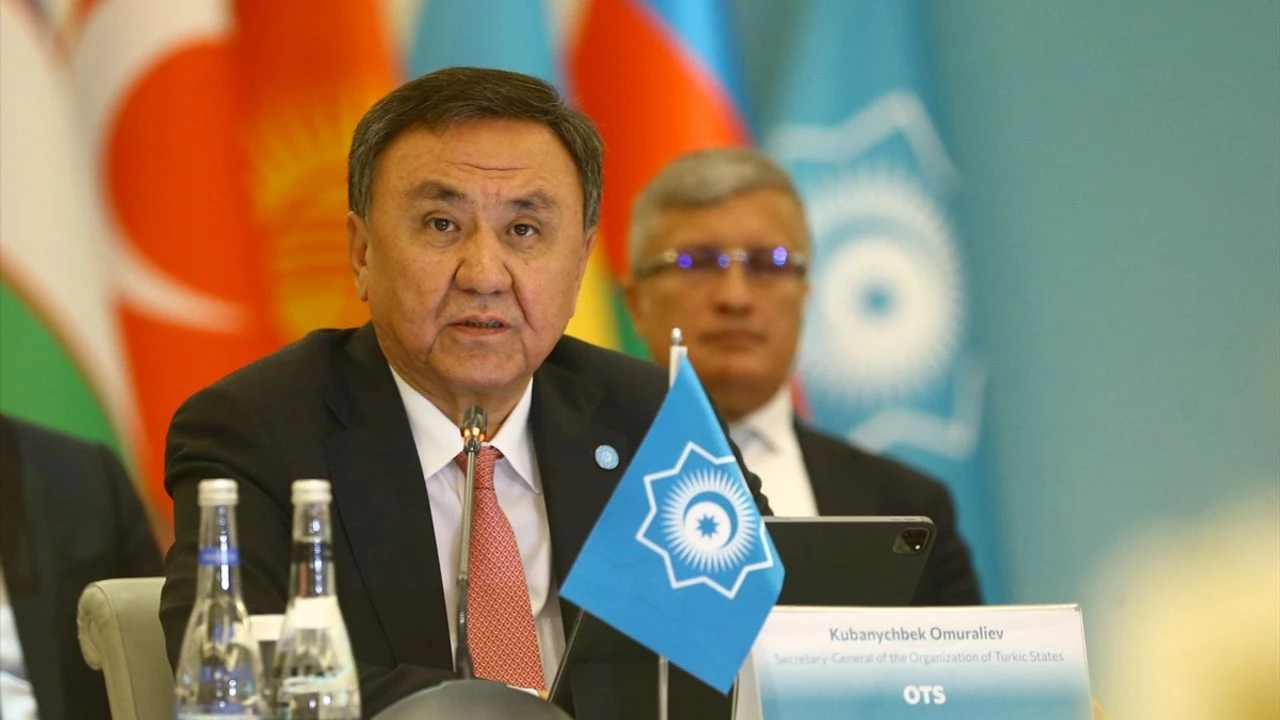
The 2nd Meeting of Ministers in Charge of Family and Social Policy of the Organization of Turkic States Held in Baku
The 2nd Meeting of Ministers in Charge of Family and Social Policy of the Organization of Turkic States Held in Baku
The 2nd Meeting of Ministers in Charge of Family and Social Policy of the Organization of Turkic States (OTS) was held in Baku, the capital of Azerbaijan.
Hosted by Bahar Muradova, Chairperson of the State Committee for Family, Women and Children Affairs of Azerbaijan, the meeting was attended by Türkiye’s Minister of Family and Social Services Mahinur Özdemir Göktaş, Chairman of the Committee on Family and Youth Affairs of the Ministry of Culture and Information of Kazakhstan Kayrat Kambarov, Deputy Minister of Labour, Social Security and Migration of Kyrgyzstan Kyiyal Januzakova, and Deputy Minister of Employment and Poverty Reduction of Uzbekistan Rano Turdiboeva.
Also in attendance were Secretary General of the Organization of Turkic States Ambassador Kubanychbek Omuraliev, Minister of Labour and Social Security of the Turkish Republic of Northern Cyprus (TRNC) Sadık Gardiyanoğlu, and Deputy Minister of Labour and Social Protection of the Population of Turkmenistan Halbibi Tachjanova.
In her speech, Muradova emphasized that the concept of family symbolizes loyalty and sacrifice in the Turkic world. She spoke about the efforts to strengthen the family institution, stating:
"We must reinforce our mechanisms regarding early marriages, divorces, and other related issues to strengthen the foundation of the family. We should prevent the integration of values foreign to our culture into our societies."
OTS Secretary General Omuraliev underlined that one of the core values underpinning cooperation among the Turkic states is the importance given to the family institution:
"Family has always been considered sacred in the Turkic world. Respect for the elderly, solidarity within the family, and mutual responsibility are among the highest values inherited by the Turkic states through generations. In the face of modern challenges, preserving this understanding and transmitting it to future generations remains one of our main duties."
Deputy Minister Rano Turdiboeva of Uzbekistan emphasized the importance of establishing a legal framework for protecting women's rights and ensuring gender equality, as well as its effective implementation.
She highlighted that concrete steps have been taken in Uzbekistan in this regard, with necessary resources allocated from the state budget and relevant committees established.
Stressing the critical role of women's education and awareness, she noted:
"Improving women's knowledge and skills not only supports their personal development but also contributes to the overall progress of society."
Kayrat Kambarov, Chairman of the Committee on Family and Youth Affairs of the Ministry of Culture and Information of Kazakhstan, stated that the strong spiritual bonds, shared history, and common family values among the Turkic states continue to be the foundation of their cooperation today.
Speaking about Kazakhstan’s efforts to strengthen the family structure, Kambarov expressed his belief that the steps taken by the OTS in this regard would not only enhance regional cooperation but also strengthen solidarity among peoples.
Kyiyal Januzakova, Deputy Minister of Labour, Social Security and Migration of Kyrgyzstan, proposed the establishment of a Women’s Platform under the framework of the OTS:
"Such a platform could serve as a strategic tool to amplify women’s voices, promote solidarity, and enhance regional cooperation," she said.
Halbibi Tachjanova, Deputy Minister of Labour and Social Protection of the Population of Turkmenistan, stated that the active participation of women in social and economic life is among the priority areas of state policies in her country.
She emphasized that granting women equal rights and ensuring gender equality are integral parts of national policy.
TRNC Minister of Labour and Social Security Sadık Gardiyanoğlu, in his address, spoke about the struggle for independence of the Turkish Cypriots and the difficulties they face due to isolation.
He reiterated the call for recognition of the TRNC and reminded the audience that the promises made to Turkish Cypriots under the UN’s Annan Plan by the United Nations and the European Union have not been fulfilled.
Gardiyanoğlu stated: "Even though our country is not yet officially recognized, the opening of representative offices by countries that already have embassies in the Greek Cypriot Administration of Southern Cyprus (GCA) would help counter the efforts of the GCA to isolate the TRNC from the international community."
At the end of the meeting, a joint declaration was adopted by the participants.